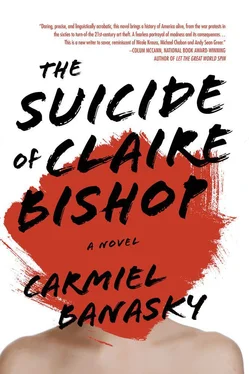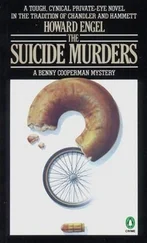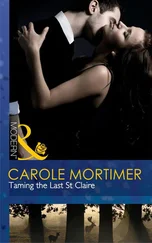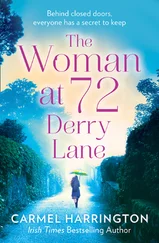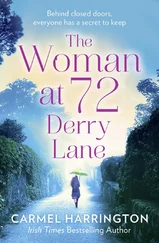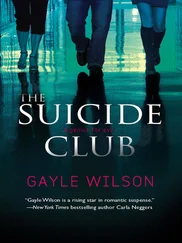A rustle as a rat skimmed the length of the wall. Elsa was out in the car. How long had she been in here? The rusty light gave no clue; there were no clocks. Time inside these grounds happened like the weather happened, or the erosion of the earth.
But she knew: It had been too long. And the first time she’d left Elsa alone. Perhaps she should panic, she thought calmly. Elsa wanted to die. What if she found a way? And if her mother were to die—
She raced back the way she’d come, from the gymnasium, down the hall, out the doors to the main path. Within seconds, she was drenched, hair flattened to her forehead and stinging her eyes. And if her mother wasn’t in the car? If she’d walked off to the woods like an escaped inmate? Claire flung herself through puddles, past the lake quaking with rain, slashing through the grass. Why had she left her in the car? Why had she taken so long inside? Did a part of her want her mother to escape? It was the most horrendous gift she could think to give and no, no that was not what she wanted. If all that was left of Elsa were fingerprints on the car window, what then?
But if her mother was still safe in the car, if Claire was given this gift despite her carelessness — then it would mean she’d made the right choice for Elsa, to not let her go yet. She raced down the path toward the stone wall. She believed in the stones and the path. She believed in her mother and the person she had become. She believed in loving this woman whom she wouldn’t let die. She would do anything to be right this one time. She would be good. She might even believe in God. She would live. She would love life. She would do everything.
Through the downpour, the rain in her eyes, she glimpsed the stone wall and beyond it, there was Elsa, rising out of the car and turning away from Claire. Elsa hadn’t seen her. As Claire attempted to cross the wall, her shoe caught in a stone and she tried to pry it loose. When she looked up again, Elsa was walking steadily into the woods. Claire ran, one-shoed, calling out her mother’s name, straining to catch up to her.
May 19, 1946, Ovid, New York
Claire finally visited yesterday. We were expecting her weeks ago. We were, in fact, expecting her for years, but that is another matter. She gave me a kiss on either cheek, because that is what the French do, she said. She must have read this in a magazine. She did not embrace me. I was so upset I went to my room and said I did not feel well. Later, she wanted to go to the grocer, to get some exotic ingredients she had learned to cook from her new city friends, though she assures me she does not live in the city. She and Ernest made a plan for the three of us, though they didn’t consult me, to have a fancy dinner and pretend we were at a restaurant on the Riviera or somewhere. But I put my foot down and said I did not want her going to the store with me.
She wrote me a grocery list: artichoke, hearts of palm, mango, avocado, swordfish. We were alone in the kitchen. I said I did not think they would have those items. She asked me about her grandmother. I told her she had died of pneumonia several months ago and if she’d come home a little sooner, she might have said goodbye. I only told her the truth. She made as if to hit me. But I caught her arm before she could, and I slapped her face. It hurt my palm, I was surprised at that. I had never hit her before. She ran from the room crying. I thought, yes she is acting her age now, rather than the age she thinks she is.
A woman at the store, she is Italian, has always had eyes for Ernest. She asked after him. I called her a whore under my breath but she did not hear me. I am afraid I have it in me to kill a person who would take something that is mine. But Ernest has eyes for no one aside from me and Marlene Dietrich. And even for her, only ears. She is good company to keep, and I tell him that I would leave me for her as well if I had the chance. I bought the foods Claire has always liked. I made her favorite dinner — breaded schnitzel and cheese noodles. She ate as if it pained her. Only then did I think to ask about her husband. I had forgotten him. He was busy with work, she said, and could not visit but sent his love. I thought: he is afraid of us. She refused to speak of her house or new town, when Ernest asked. I was glad. I did not want to hear those stories.
I have made up my mind to not be kind to Claire as Ernest is. She must know how much she has hurt us, and he will never tell her. He is too kind. He opens his arms and his heart and she throws rocks and spits at him. I think of when Ernest bought me a box of watercolor paints for my birthday. I asked for them, but I believe he would have known to buy them anyway. Claire was a baby then. I was stupid and left them on the floor for only a minute while I went to the toilet. Claire got her fingers in them and ate them. She smiled and laughed. She did not think they tasted bad. I was tempted to taste them myself, her pleasure was so great. Then I thought perhaps she was poisoned and it was having a stupefying affect on her, so I stuck my finger in her mouth and it came up blue and she thought this was very funny until she started to cry. I did not know what I was doing. I remember thinking, what if Ernest were to come home and find Claire poisoned by paint? I was sure he would leave me. That was what I thought. I did not think, what if my baby dies? I did not know what I was doing with a baby. Perhaps I also thought: if she does die, maybe we will have enough money to survive. I was only twenty years old. I was unqualified. Still, I am unqualified yet cannot be fired or quit.
PART VIII: WHAT A BEAUTIFUL PLACE TO HATE YOURSELF 2004
My mom is hard to miss, even in the crowd at the airport. Her frizzy hair is pulled back in a low ponytail and catches the light, little frills haloing her face. She’s wearing a T-shirt with an abstract drawing of a woman’s privates that says, BUSH GET OUT OF MY BUSH. My mother: never changing, or changing as imperceptibly as our evergreens.
“Look how long you let your hair get,” she says. My hair is not long at all. “It’s so stringy. I’ll have to cut it while you’re here. Let me look at you.” She does, and I’m afraid she’ll walk right out of the airport and into the street and get run over by a truck. Anything to get away from me.
We haven’t seen each other since before I was diagnosed.
Then she hugs me. And she keeps hugging me, moving slightly to catch her footing or maybe she’s crying. “You’re too handsome,” she says. Wisps of her hair get in my eyes and make them water. “Am I embarrassing you yet?”
Over her head, I scan the crowd for any sign of the Hasidim. One security officer is eyeing me funny, like he’s hypnotized, but he makes no move for his walkie-talkie. Here, with her, for a moment, I’m safe.
“Not yet,” I say. She’s three inches shorter than me and in that moment, looking down at the top of her head, I’m watching a painting of her and she doesn’t know I’m seeing how beautiful she is.
“Is that for me?” she asks about the Christmas-wrapped tube.
“No.”
“Oh, of course. What was I thinking? You come on a surprise visit to see me and the present you bring is for someone else.”
“It’s not for anyone.”
She doesn’t ask me why I’ve come, and so last minute. It’s enough that I’m here. Maybe she’s talked to Jules. Maybe she’s afraid I’ll leave if she presses.
We drive west in quiet in her beat-up van, around the southern end of the Puget Sound then up toward Port Townsend, our little logging vs. hippie town on the Olympic Peninsula.
“How have you been feeling lately?” she asks without looking at me. It’s the closest she’ll get to asking about my brain, which is just as well.
Читать дальше
